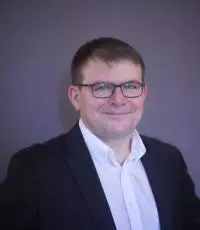Olivier Massol is Professor of Economics and serves as Scientific Assistant Director at IFP School.
He is also Senior Research Fellow at CentraleSupélec (Industrial Engineering Lab.) and Honorary Research Fellow at City, University of London (Department of Economics).
Olivier joined IFP School in 2007 as a Lecturer of Energy Economics. He subsequently became Assistant Professor (2009-2014), Associate Professor (2014-2021) and Professor at the Center for Energy Economics and Management in 2021. From 2000 to 2007, he worked for Gaz de France (now Engie) – a utility company – as an economist and then a project manager.
Olivier’s research interests and expertise are in applied economics and more specifically in the fields of Industrial Organization and Energy and Natural Resources Economics. His contributions concentrate on questions related to: (i) the monetization of natural resources; (ii) the economics of energy infrastructures; (iii) the modeling of strategic interactions in the energy industries, or (iv) the spatial integration of energy markets. Olivier's research mobilizes a variety of quantitative techniques drawn from game theory, econometrics and operations research.
He is one of the founding members and serves as the Executive Director of the Chair “The Economics of Gas”, a research and teaching initiative. He is also Associate Researcher at the “Climate Economics Chair” (Research Program: Energy Transitions). He also contributes to the IFP School's Chair "Carbon management and negative CO2 emissions technologies towards a low carbon future" (CarMa). Olivier is an elected council member of the French Association for Energy Economics.
Olivier Massol graduated with an Ingénieur Civil des Mines degree (Saint Etienne, 1998), a MSc. degree in Energy Economics (IFP School) and a MRes. in Industrial Organization (Paris-Dauphine University). In 2013, he received his PhD. in Economics from City, University of London and defended an Habilitation à Diriger des Recherches in Economics at Paris-Dauphine University.
- Chair “The Economics of Gas”
- Climate Economics Chair - Research Program: Energy Transition
- Chair "Carbon Management and Negative CO2 Emissions Technologies towards a low carbon future" (CarMa).
Mégy, C., and O., Massol, (2023). Is Power-to-Gas always beneficial? The implications of ownership structure. Energy Economics, 2023, Vol. 128, 107094.
Nicolle, A., Cebreros, D., Massol, O., and E. Jagu, (2023). Modeling CO2 pipeline systems: An analytical lens for CCS regulation. Economics of Energy and Environmental Policy, Vol.12(2), 157-172.
Massol, O., Hache, E., and A. Banal-Estañol, (2023). Trade sanctions and international market integration: Evidence from the sanctions on Iranian methanol exports. The World Economy, Forthcoming.
https://doi.org/10.1111/twec.13427
Nicolle, A. and O. Massol, (2023). Build more and regret less: Oversizing H2 and CCS pipeline systems under uncertainty. Energy Policy, Vol. 179, 113625.
Jagu, E, Massol, O. (2022). Unlocking CO2 infrastructure deployment: The impact of carbon removal accounting. Energy Policy, Vol. 171., 113265.
Thomas, A., Massol, O., Sévi. B. (2021). How are day-ahead prices informative for predicting the next day’s consumption of natural gas? Evidence from France. The Energy Journal, Vol. 43(5).
Baba, A., Creti, A. and O. Massol. (2020). What can be learned from the free destination option in the LNG imbroglio? Energy Economics, 89: 104764.
Perrotton, F., Massol, O. (2020). Rate-of-return regulation to unlock natural gas pipeline deployment: insights from a Mozambican project. Energy Economics, 85: 104537.
Dukhanina, E., Massol, O., and F. Lévêque. (2019). Policy measures targeting a more integrated gas market: Impact of a merger of two trading zones on prices and arbitrage activity in France. Energy Policy, 132: 583-593.
Massol, O., and O. Rifaat, (2018). Phasing out the U.S. Federal Helium Reserve: policy insights from a world helium model. Resource and Energy Economics, 54: 186-211.
Massol, O., and A. Banal-Estañol, (2018). Market Power And Spatial Arbitrage Between Interconnected Gas Hubs. The Energy Journal, 39(SI2): 67-95.
Dukhanina, E., and O. Massol, (2018). Spatial Integration of Natural Gas Markets: a Literature Review. Current Sustainable/Renewable Energy Reports, 5(2): 129-137.
Perrotton, F., and O. Massol, (2018). The technology and cost structure of a natural gas pipeline: Insights for costs and rate-of-return regulation. Utilities Policy, 53: 32-37.
Massol, O., Tchung-Ming, S., and A. Banal-Estañol. (2018). Capturing industrial CO2 emissions in Spain: infrastructures, costs and break-even prices. Energy Policy, 115: 545-560.
Banal-Estañol, A., Eckhause, J., and O. Massol. (2016). Incentives for early adoption of carbon capture technology: further considerations from a European perspective. Energy Policy, 90: 246-252.
Massol, O., Tchung-Ming, S., and A. Banal-Estañol. (2015). Joining the CCS Club! The Economics of CO2 Pipeline Projects. European Journal of Operational Research, 247(1); 259-275.
Massol, O. and A. Banal-Estañol. (2014). Export Diversification and Resource-based Industrialization: the case of Natural Gas. European Journal of Operational Research, 237(3): 1067-1082.
Abada, I., S.A. Gabriel, V. Briat, and O. Massol. (2013). A Generalized Nash-Cournot Model for the North-Western European Natural Gas Markets with a Fuel Substitution Demand Function: The GaMMES Model. Networks and Spatial Economics, 13(1): 1-42.
Abada, I., V. Briat and O. Massol. (2013). Construction of a Fuel Demand Function Portraying Interfuel Substitution, a System Dynamics Approach. Energy, 49(1): 240-251.
Abada, I., and O. Massol. (2011). Security of Supply and Retail Competition in the European Gas Market: Some Model-based Insights. Energy Policy, 39(7): 4077-4088.
Massol, O., (2011). A Cost Function for the Natural Gas Transmission Industry: Further Considerations. The Engineering Economist, 56(2): 95-122.
Massol, O., and S. Tchung-Ming, (2010). Cooperation among Liquefied Natural Gas suppliers: Is Rationalization the Sole Objective? Energy Economics, 32: 933-47.



